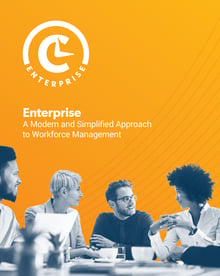
Being a part of a growing business is an exciting experience. However, as your revenue increases, so does your contact center volume. Adding customers means more issues and it’s up to your management team to keep everyone happy in an efficient way.
Below is a blueprint to help your company successfully scale and grow contact center operations…
Phase 1: The starting point and initial building stage
Everyone needs to start somewhere. This first phase is exciting and it’s also the easiest to manage without a lot of organization. You have customers reaching out to ask questions, but you can typically track them in a spreadsheet and/or through email without going through too much trouble. Agent management isn’t an issue because you either have none or only a handful of them.
Phase 2: Creating a small business (SMB) contact center infrastructure
Here is where things start to get interesting from a contact center perspective. Entering this phase typically occurs when a spreadsheet is becoming increasingly difficult to manage because more issues are coming in. Customers may also be waiting longer for a response because of the chaos around agent staffing as you try to handle the increased contact volume. It’s here where many companies begin to realize that they need contact center technology, such as contact center as a service (CCaaS) and workforce management (WFM) software, to help ensure issues are being resolved in the right way and in a timely fashion.
Phase 3: Moving from SMB to mid-size operations
It’s important when evaluating vendors for the first time as a SMB company that you select technology which is set up to
Having a way to effectively staff up and down quickly also becomes much more important as a company moves out of the SMB space. A company will typically establish customer service level agreements (SLAs) for the first time when they become a mid-size company. These agreements are essentially contracts with customers stating that they should expect a certain level of performance (such as responding within 24 hours) from your contact center. WFM software is essential here to always ensure the right staff is in place to meet SLA requirements so customers remain happy.

|
Want to learn more about WFM software and how it can impact your business?Click here to learn all about the CommunityWFM Enterprise solution, featuring our industry leading adherence solution! |
Phase 4: Optimizing your mid-size efforts
The final phase is all about taking your mid-size efforts to the next level. You already have a modern CCaaS platform with WFM capabilities in place. It’s now a matter of figuring out which features and functionality make the most sense for your unique contact center operations. Below are a few examples.
Have a mobile workforce?
Consider implementing a mobile app for scheduling and time off management to stay connected with agents.
Have multilingual agents?
Select contact center technology that lets each agent choose to work in a language they prefer.
Need to prove the value of your efforts?
Sophisticated reporting indicates to you and your management team the strengths (and weaknesses) of your contact center operations.
Scaling and growing contact center operations the right way requires smart decision making and long-term thinking to maximize efforts and reduce costs. By getting your software properly established from the start, you can spend less time focusing on your tech stack and more time on the needs of your agents and customers.







